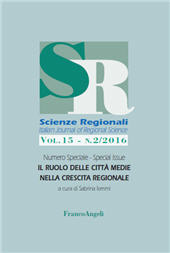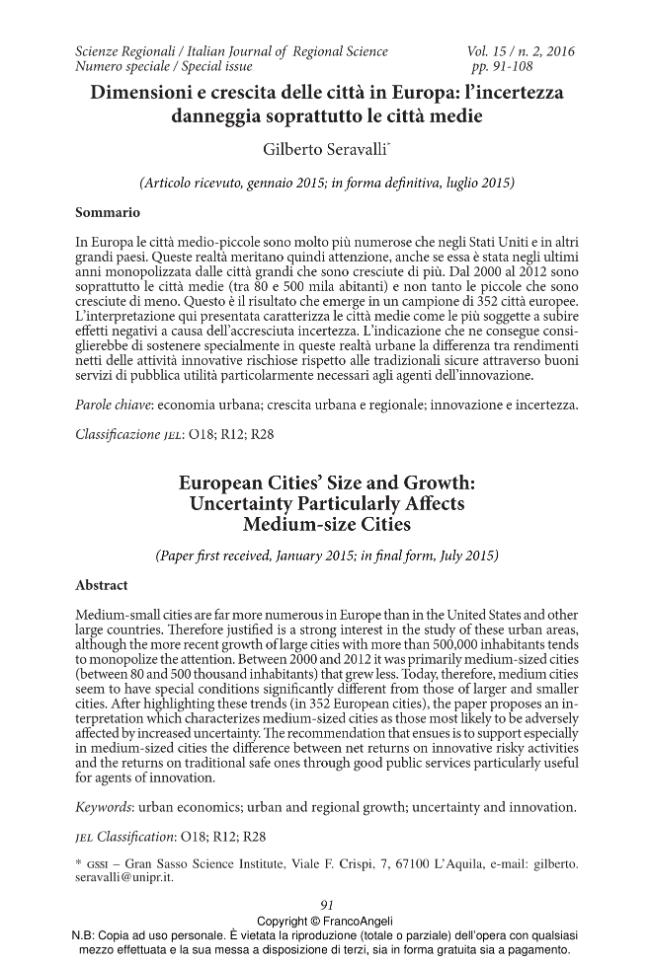Dimensioni e crescita delle città in Europa : l'incertezza danneggia soprattutto le città medie
91-108 p.
In Europa le città medio-piccole sono molto più numerose che negli Stati Uniti e in altri grandi paesi. Queste realtà meritano quindi attenzione, anche se essa è stata negli ultimi anni monopolizzata dalle città grandi che sono cresciute di più. Dal 2000 al 2012 sono soprattutto le città medie (tra 80 e 500 mila abitanti) e non tanto le piccole che sono cresciute di meno. Questo è il risultato che emerge in un campione di 352 città europee. L'interpretazione qui presentata caratterizza le città medie come le più soggette a subire effetti negativi a causa dell'accresciuta incertezza. L'indicazione che ne consegue consiglierebbe di sostenere specialmente in queste realtà urbane la differenza tra rendimenti netti delle attività innovative rischiose rispetto alle tradizionali sicure attraverso buoni servizi di pubblica utilità particolarmente necessari agli agenti dell'innovazione.
Medium-small cities are far more numerous in Europe than in the United States and other large countries. Therefore justified is a strong interest in the study of these urban areas, although the more recent growth of large cities with more than 500,000 inhabitants tends to monopolize the attention. Between 2000 and 2012 it was primarily medium-sized cities (between 80 and 500 thousand inhabitants) that grew less. Today, therefore, medium cities seem to have special conditions significantly different from those of larger and smaller cities. After highlighting these trends (in 352 European cities), the paper proposes an interpretation which characterizes medium-sized cities as those most likely to be adversely affected by increased uncertainty. The recommendation that ensues is to support especially in medium-sized cities the difference between net returns on innovative risky activities and the returns on traditional safe ones through good public services particularly useful for agents of innovation.
-
Articles du même numéro (disponibles individuellement)
-
Informations
Code DOI : 10.3280/SCRE2016-002005
ISSN: 2035-603X
KEYWORDS
- Economia urbana
- crescita urbana e regionale
- innovazione e incertezza.;Urban economics
- urban and regional growth
- uncertainty and innovation



